Though still <1% of total traffic, it’s now our highest converting channel at 10%+ CVR (going by our new custom event tracking in Web Analytics).
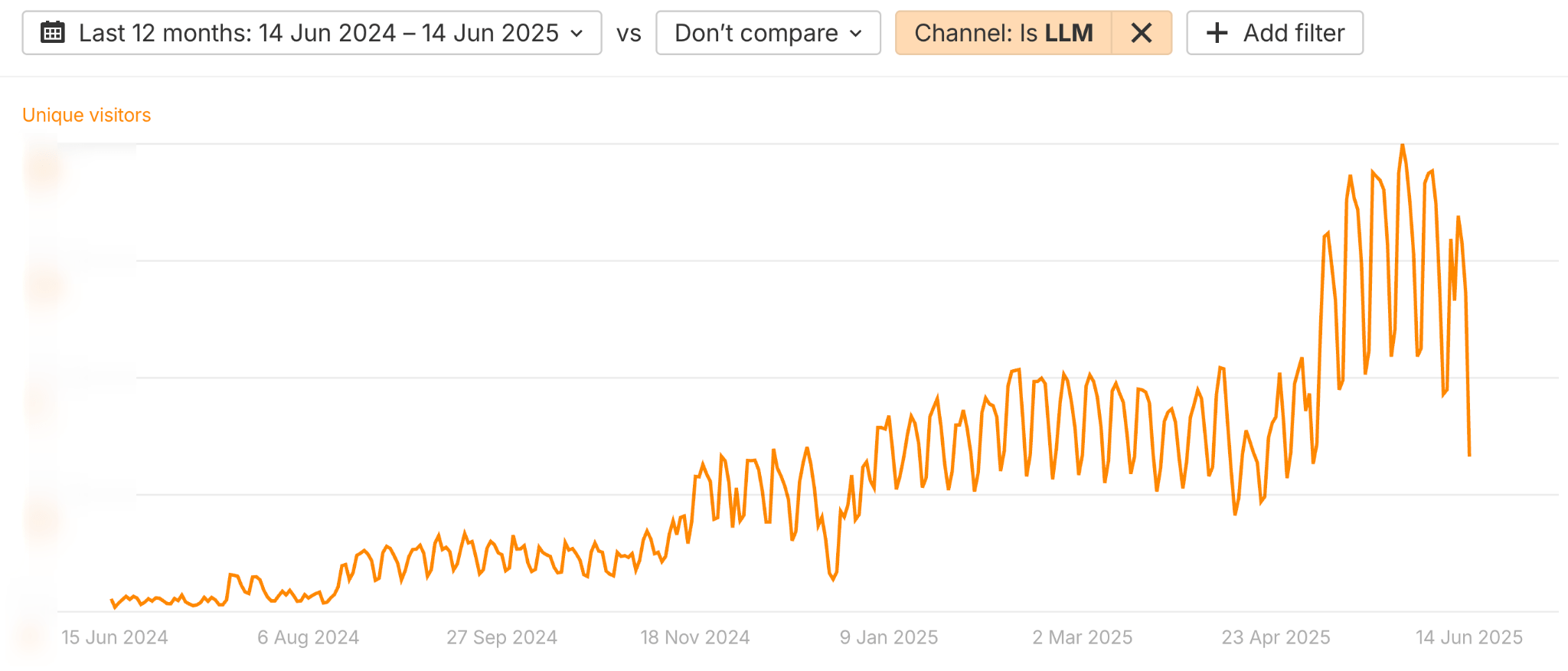
I wanted to see if other sites were experiencing any AI traffic growth–especially now that zero-click search has taken hold.
We decided to update the findings of our March AI traffic research while we were at it.
With the help of Xibeijia, Ahrefs’ awesome data scientist, we’ve analyzed 81,947 sites (up from ~35K sites in March), to understand more about AI traffic today.
AIO/AIM traffic currently gets tracked as “Search” traffic in site analytics tools. In the words of Patrick Stox, these features are not “broken out in a way that can be reliably tracked.”
In other words, we can’t yet filter between “traditional search” and “AI search”. So, while we have compared “search traffic” and ”AI traffic” in this study, some of that “search traffic” will technically be driven by AI features.
Despite what we’ve seen in Ahrefs data, average AI traffic doesn’t seem to have grown much over the last few months. We saw a peak in April, but May and June figures dipped again.
AI traffic now represents 0.25% of a site’s total traffic, on average. It’s still a drop in the ocean, but as we’ve acknowledged before, it’s likely AI referral traffic is at least somewhat underestimated.
Sidenote.
Bear in mind that this isn’t a perfect like-for-like comparison with our March study, as the dataset size has increased.
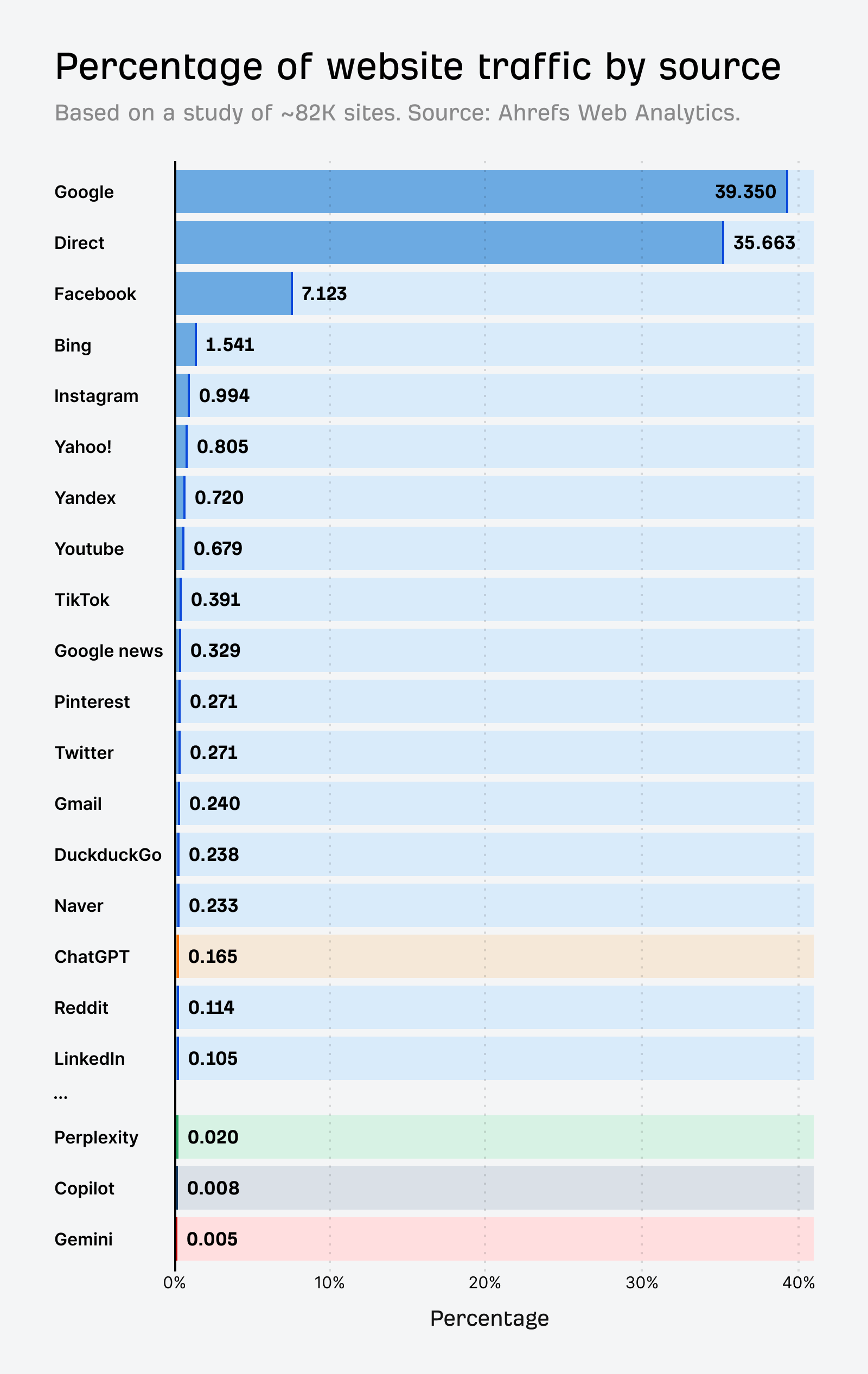
Google sends a whopping 210x more traffic than the “Big three” AI platforms–though the gap has narrowed since March, when Google sent 345x more traffic.
But what immediately jumped out at me from this latest data capture was ChatGPT’s growth.
In our previous study, Reddit was out-referring all three major AI platforms (ChatGPT, Perplexity, and Gemini) combined.
Now, ChatGPT alone sends out marginally more traffic than Reddit (+0.05%) and LinkedIn (+0.06%).
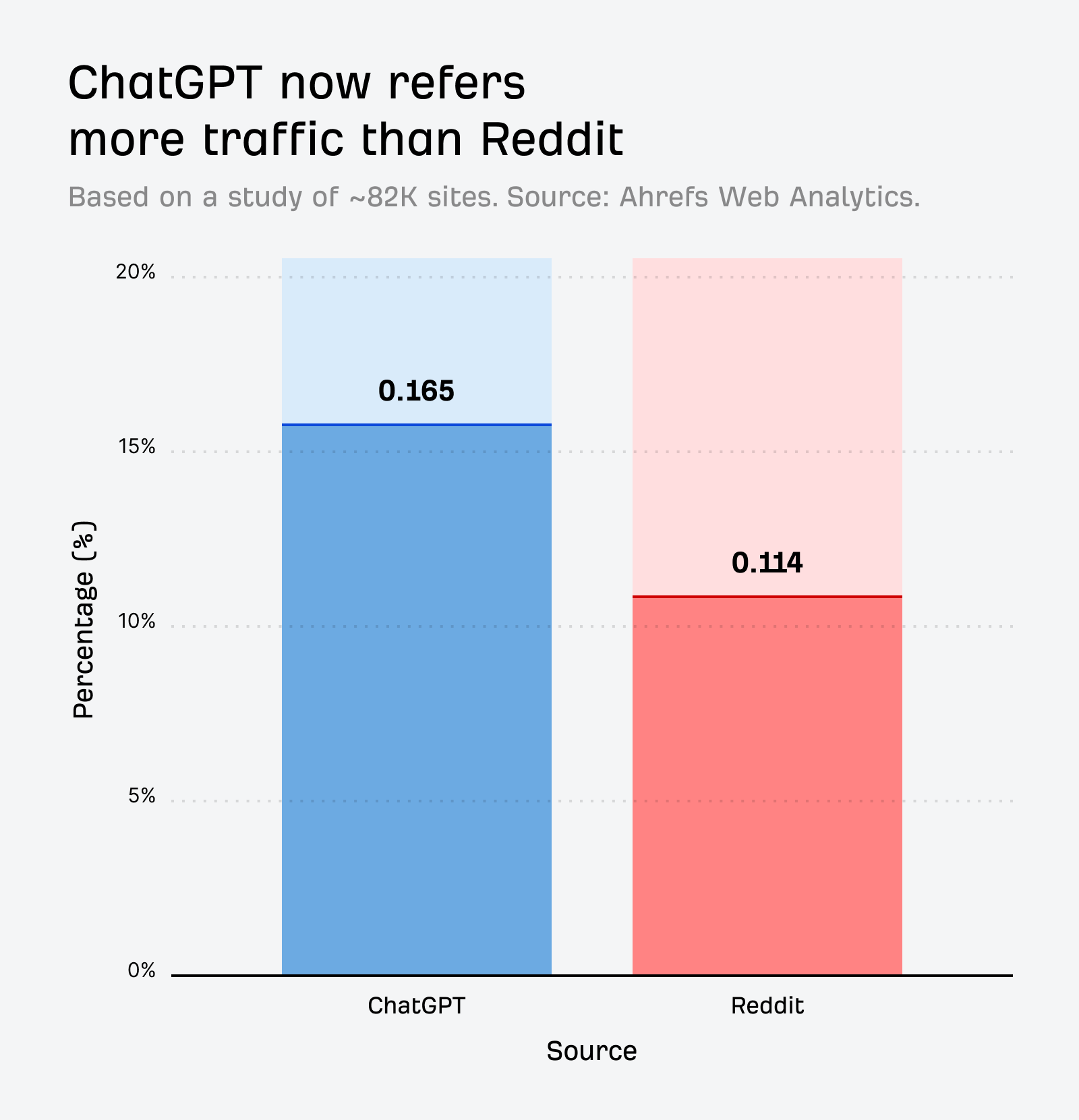
The bar isn’t exactly high here. Reddit and LinkedIn are famously zero-click platforms, designed to disincentivize off-site visits. But it shows clear growth, nonetheless.
And it doesn’t end there.
ChatGPT has driven AI traffic growth almost single-handedly, growing 85% since January.
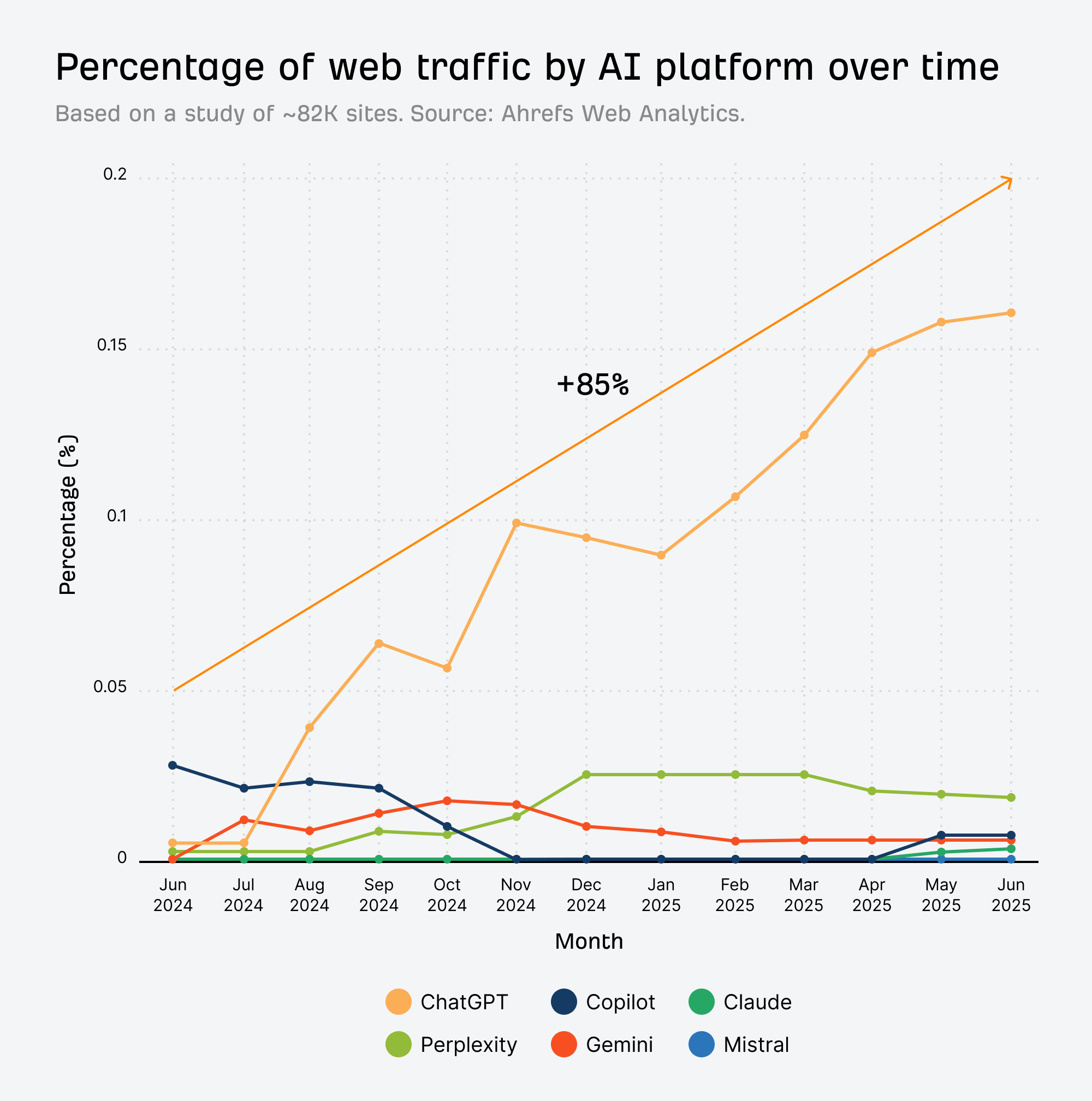
It has further cemented its status as the top AI referrer–sending >80% of AI traffic–up ~30% since our last study.
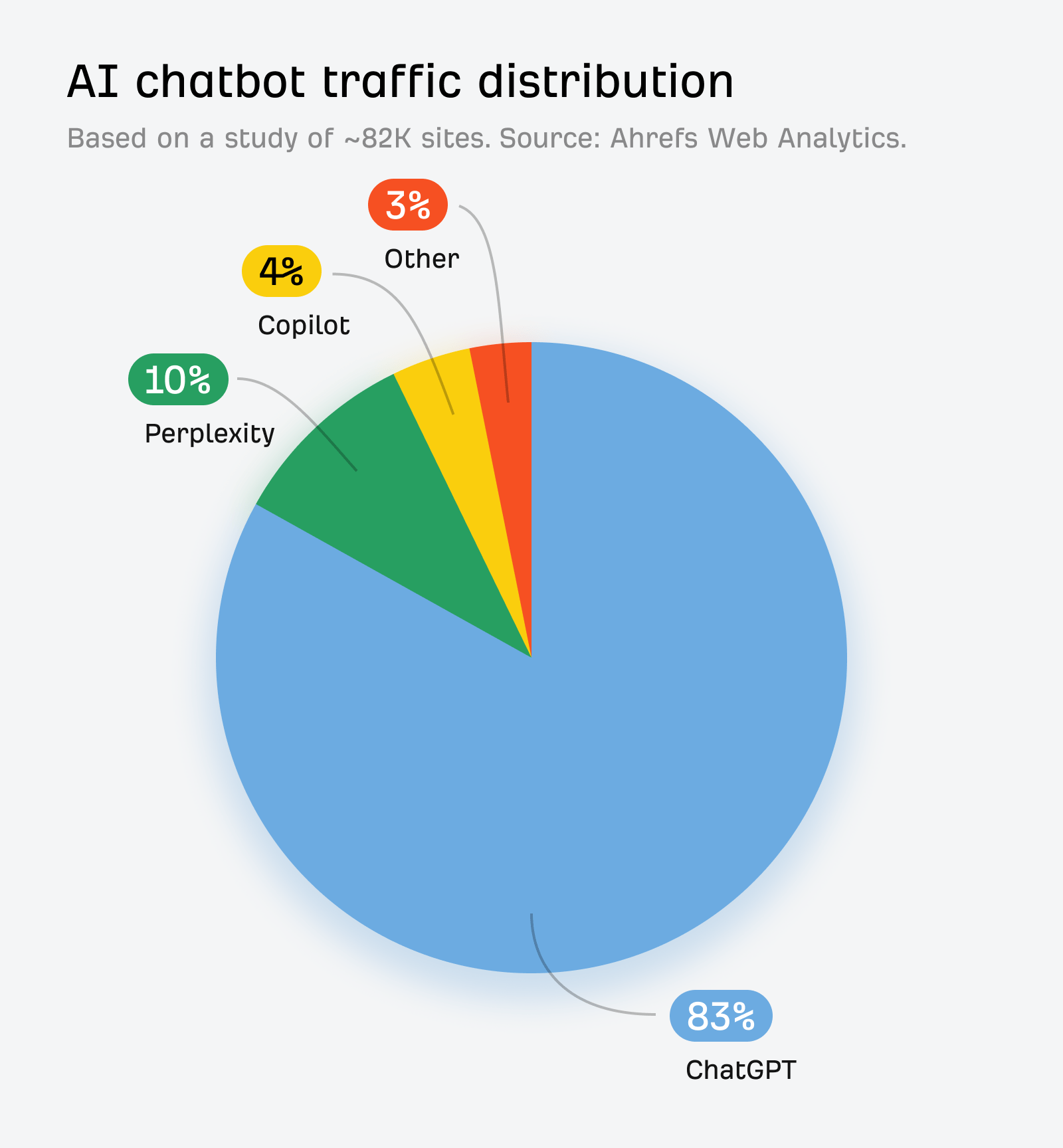
The “big three” AI traffic referrers have also changed since we last looked–Copilot is back in business following a referral outage, and now sends on more AI traffic than Gemini.
In all, this new trio refer 0.19% of a site’s total traffic on average (up from 0.12% in March).
Wrapping up
AI traffic is still marginal–nothing has changed there–but the makeup of that traffic is shifting, and we’ve witnessed some moderate growth.
While it has levelled out for now, I’m confident there’s still more to come.
As search clicks decline, AI clicks are on the up–but as I’ve said before, AI is never going to be a significant source of traffic for most sites.
And there isn’t a world where AI traffic will replace the traffic we’ve enjoyed from search.
The MO of any AI platform is to answer a user’s questions natively, after all.
So, overlook search at your peril…
In the words of Glenn Gabe:
“I think site owners run the risk of missing the forest for the trees by heavily focusing on AI search right now and ignoring Google Search…the fact of the matter is that Google still drives the most traffic to sites by a mile.”
Of course, AI is not just about traffic–it drives brand awareness, and can hand over more informed users.
But we all need to weigh AI’s value to us, individually, and be strategic about how we allocate our resources to it.
If you choose to actively pursue AI traffic, our data shows that ChatGPT is the platform to focus on.
We’ve only just released conversion tracking in Ahrefs Web Analytics, but as soon as we have enough data, I’m hoping to dig into AI conversions.
Until then, we’ll keep tracking the trends and sharing what we find.
Further reading
Similar Posts
Pardon Our Dust: New Tutorial Organization and Navigation Roll-Out
TL;DR: Heads up! We’re rolling out a new organization structure of our tutorials, courses, and guides, so that we can implement our new guide navigation. You may find the course navigation change at any time within the next couple of weeks. Use the “Was This Helpful?” form at the bottom of any tutorial to reach…

Education SEO for Higher Education, EdTech and K-12 Schools
If you’re doing SEO for higher education institutions, schools, or EdTech startups, this is hands down the only education SEO guide you’ll ever need. Before I started SEO, I was an educator for about 10 years. To say education is close to my heart would be an understatement. But, the real value of this post comes…
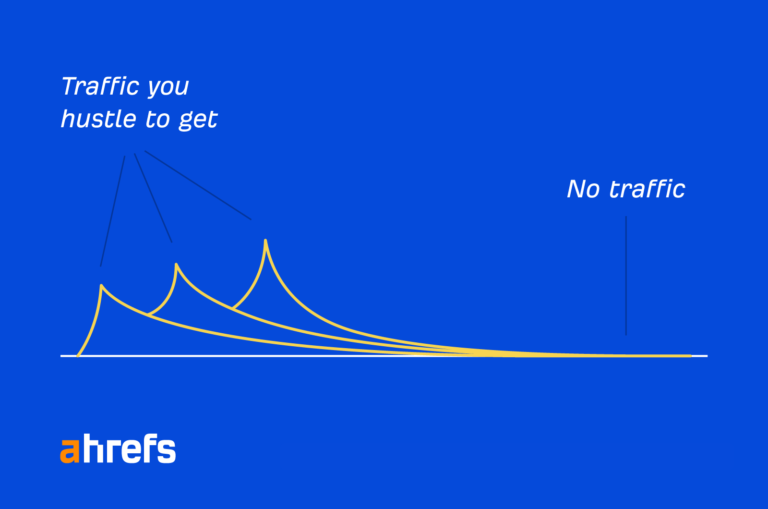
How I Boosted Traffic by 72% With Ahrefs’ AI Content Helper
Any content writer with skin in the game knows the sinking feeling that comes with the traffic “flatline of nope” after that initial “spike of hope”. Content dates, traffic dips. It’s a tale as old as… web 1.0. But recently I’ve cottoned on to a new strategy that’s helping me claw back some of those lost…

Top 50 Fastest-Growing EdTech Companies
The EdTech industry is expanding rapidly, with a global market projected to reach $354.71 billion this year. From AI tutors to classroom management platforms, both new startups and established players are racing to capture attention and market share. Using Ahrefs’ website data, we’ve found the top 50 fastest-growing EdTech companies of 2025, ranked by estimated year-over-year…

How to Use Gmail with a Custom Domain: An Easy Step-By-Step Guide to Setup for Newbies
Need to know how to use Gmail with a custom domain? Be prepared to discover everything you need, plus a shiny new alternative maybe. Step this way… Why would you want to use Gmail with a custom domain? Well, every business wants to really connect with its customers. If you’re anything like the majority of…

Should You Use a Hyphen in a Domain Name? Advantages and Disadvantages of URL Dashes
Can a hyphen in a domain name affect SEO? No. But should you use dashes in URLs? Depends. Find out all you need to know. So, you’ve picked the perfect business name only to find the matching domain isn’t available. Cue the never-ending ‘hyphen in domain name’ debate. Whether or not you should put a…

